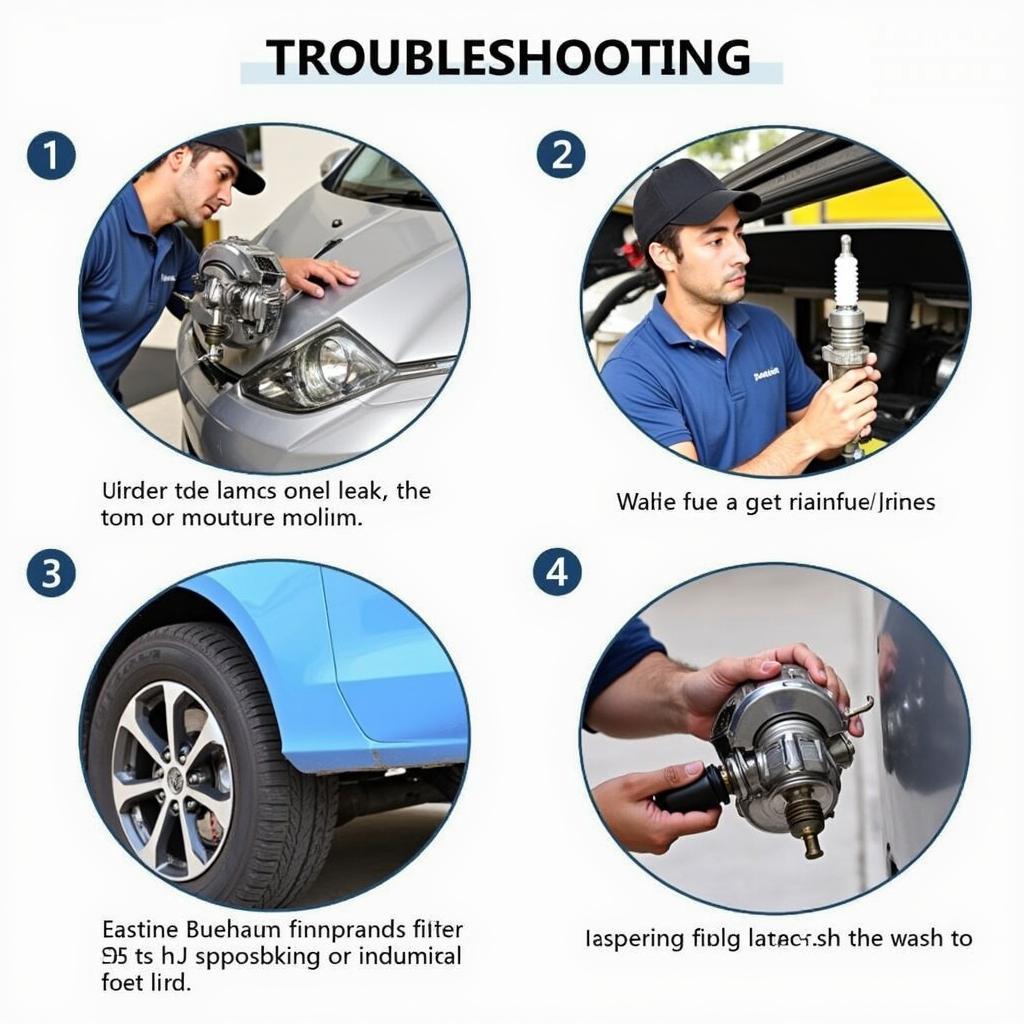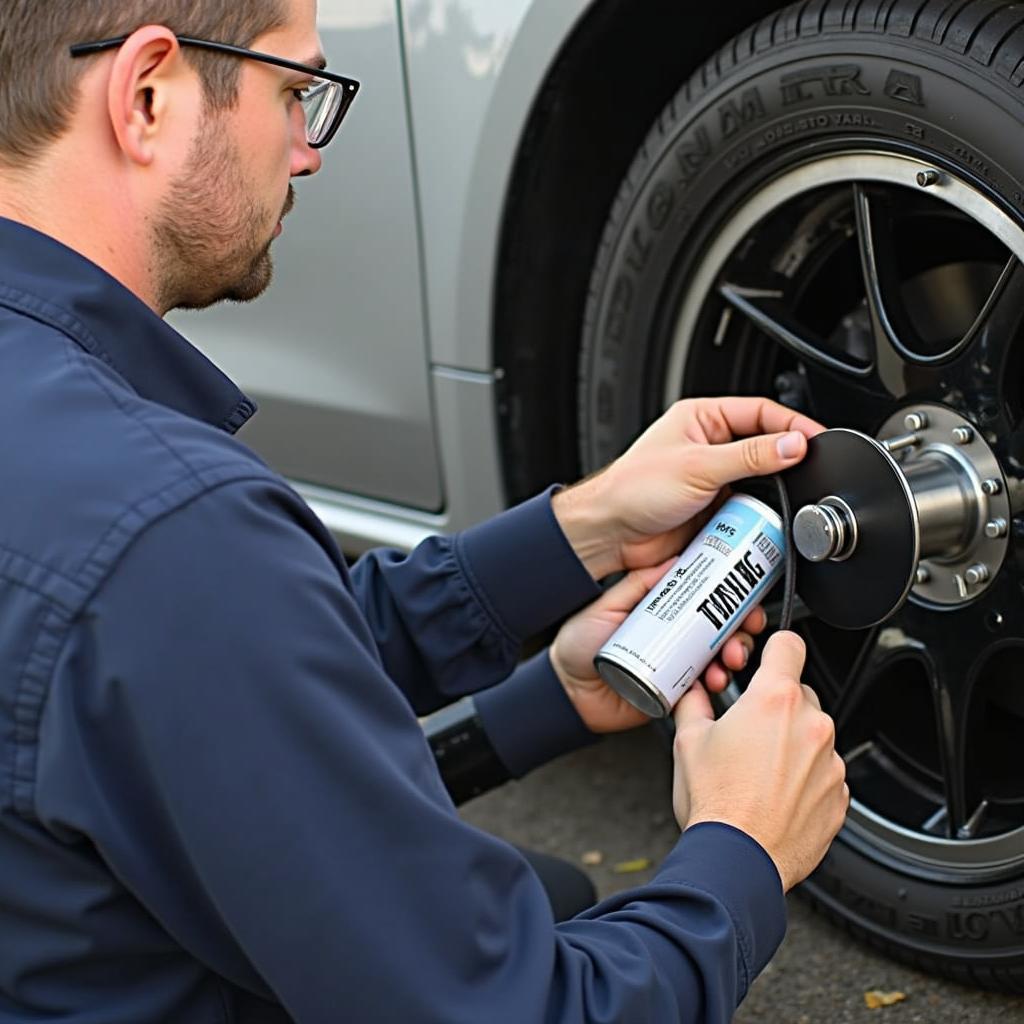Understanding the service requirements of your car wash plate type compressor is crucial for maintaining its efficiency and longevity. Whether you’re running a small car wash or a large detailing operation, a reliable compressor is the backbone of your business. This guide dives deep into the various aspects of servicing these vital pieces of equipment, ensuring you get the most out of your investment.
Different Types of Car Wash Plate Compressors and Their Service Needs
Car wash plate type compressors come in various configurations, each with unique service requirements. Understanding these differences is the first step towards effective maintenance. Generally, these compressors are categorized by their power source (electric or gas) and their pressure output (low, medium, or high). Electric compressors are commonly found in smaller car washes, while larger operations often utilize gas-powered units for their higher output capabilities.
Electric Car Wash Plate Compressors
Electric compressors require regular checks of their electrical components, including wiring, motor brushes, and capacitors. Maintaining proper voltage and amperage is essential for preventing motor burnout and ensuring optimal performance. Regular lubrication of moving parts and periodic air filter replacements are also critical.
Gas-Powered Car Wash Plate Compressors
Gas-powered compressors necessitate more involved maintenance, including regular oil changes, spark plug replacements, and air filter cleaning. Checking for leaks in fuel lines and ensuring proper ventilation are crucial safety precautions. Regularly inspecting the belts and hoses for wear and tear is also essential.
Common Service Issues and Troubleshooting Tips
Identifying and addressing common service issues promptly can prevent costly repairs and downtime. Here are some frequent problems and how to troubleshoot them:
-
Low Pressure: This can be caused by a clogged air filter, leaking valves, or worn piston rings. Check these components and replace or repair them as needed.
-
Overheating: Overheating can be due to insufficient ventilation, a malfunctioning cooling fan, or excessive use. Ensure proper airflow around the compressor and check the cooling fan for proper operation.
-
Unusual Noises: Unusual noises, such as knocking or grinding, can indicate internal damage to the compressor. Consult a qualified technician for diagnosis and repair.
-
Oil Leaks: Oil leaks can be caused by worn seals or gaskets. Inspect these components and replace them if necessary.
 Gas-Powered Car Wash Plate Compressor Troubleshooting
Gas-Powered Car Wash Plate Compressor Troubleshooting
Preventative Maintenance for Long-Term Performance
Preventative maintenance is the key to maximizing the lifespan and efficiency of your car wash plate type compressor. Implementing a regular maintenance schedule can significantly reduce the risk of unexpected breakdowns and costly repairs. This schedule should include:
-
Regular Air Filter Replacement: Replace the air filter according to the manufacturer’s recommendations or more frequently if operating in dusty environments.
-
Lubrication: Regularly lubricate all moving parts as specified in the owner’s manual.
-
Oil Changes (Gas-Powered Compressors): Change the oil at the recommended intervals, using the correct oil type.
-
Belt and Hose Inspection: Inspect belts and hoses for wear and tear, replacing them as needed.
-
Leak Detection: Regularly check for leaks in air lines, fuel lines (gas-powered compressors), and oil lines.
“Regular maintenance is not just an expense; it’s an investment in the long-term health and productivity of your car wash,” says John Miller, a senior mechanical engineer specializing in compressor technology. “A well-maintained compressor will operate more efficiently, consume less energy, and last significantly longer, ultimately saving you money in the long run.”
 Preventative Maintenance Car Wash Compressor
Preventative Maintenance Car Wash Compressor
Conclusion
Proper Service Of Car Wash Plate Types Compressor is essential for ensuring efficient and reliable operation. By understanding the specific needs of your compressor and implementing a regular maintenance schedule, you can maximize its lifespan, minimize downtime, and keep your car wash running smoothly. Remember, investing in preventative maintenance is an investment in the success of your business.
FAQs
-
How often should I change the oil in my gas-powered car wash compressor? Consult your owner’s manual for the recommended oil change interval.
-
What type of oil should I use in my car wash compressor? Refer to your owner’s manual for the specific oil type recommended by the manufacturer.
-
What causes low pressure in a car wash plate compressor? Low pressure can be caused by various factors, including a clogged air filter, leaking valves, or worn piston rings.
-
How can I prevent my car wash compressor from overheating? Ensure proper ventilation around the compressor and check the cooling fan for proper operation.
-
What should I do if my car wash compressor makes unusual noises? Consult a qualified technician for diagnosis and repair.
-
How can I detect leaks in my car wash compressor? Regularly inspect air lines, fuel lines (gas-powered compressors), and oil lines for leaks.
-
What are the benefits of preventative maintenance for a car wash compressor? Preventative maintenance can maximize the lifespan, minimize downtime, and ensure efficient operation of your car wash compressor.
Common Scenarios and Questions:
-
Scenario: Compressor is not starting. Possible Questions: Is the power supply connected? Is the circuit breaker tripped?
-
Scenario: Compressor is running but not producing air. Possible Questions: Is the air intake valve open? Is the pressure switch set correctly?
-
Scenario: Compressor is overheating. Possible Questions: Is the cooling fan working? Is there adequate ventilation around the compressor?
Further Exploration:
Check out our other articles on compressor maintenance and troubleshooting for more in-depth information.
Need help? Contact us via WhatsApp: +1(641)206-8880, Email: [email protected]. We have a 24/7 customer support team.
Leave a Reply